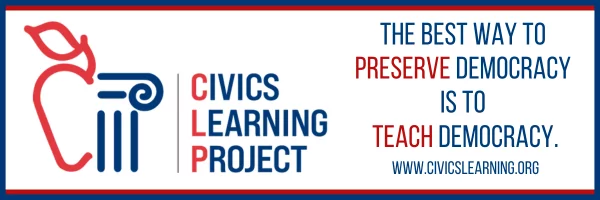CLP Current Event: May 28, 2019
Do environmental changes impact many aspects of our daily lives? What is our responsibility to avoid negative consequences?
Brought to teachers by Susie Marcus, CLP consultant, with CLP staff.
News Sources
House Democrats reject Trump’s proposed 31% EPA budget cut, by Clare Foran, CNN, May 14, 2019
The distance between House Democrats and the administration over proposed EPA funding underscores what is expected to be a painful spending fight to come as congressional Democrats, Republicans and the White House face pressure and deadlines to reach agreement over contentious funding priorities.
UN chief says world ‘not on track’ with climate change, Phys.org, May 12, 2019
“In a strong message for action on climate change, Guterres said international political resolve was fading and it was the small island nations that were “really in the front line” and would suffer most.”
Children Change Their Parents’ Minds about Climate Change, by Lydia Denworth, Scientific American, May 6, 2019
“The team of social scientists and ecologists from North Carolina State University who authored the report found that children can increase their parents’ level of concern about climate change because, unlike adults, their views on the issue do not generally reflect any entrenched political ideology. Parents also really do care what their children think, even on socially charged issues like climate change or sexual orientation.”
Questions to Consider
- What is climate change?
- What are the arguments of people who worry about climate change?
- What are the arguments of people who deny the science of climate change?
- What role are children playing in the effort to protect the earth?
- What is the Environmental Protection agency?
- What is the Clean Air Act?
- Is climate change the “civil rights” issue of 2019?
- Do climate change scientists divide us or warn us?
- Is this an international issue? Why or why not?
- What is the Green New Deal? Should climate change be a partisan issue?
- More great questions at https://www.esrl.noaa.gov/gmd/education/faq_cat-1.html
Background and More
History of Climate Change Debate, ProCon.org, May 13, 2019
CLP: Includes some informative graphics
Juliana vs. United States, Our Children’s Trust
CLP: Major court orders and plaintiff profiles
Climate Action Summit 2019, United Nations
Skeptic Arguments, Skeptical Science
Lesson Plans
Many online climate change lessons are actually junk, by The Associated Press, WTOP, May 15, 2019
CLP: Not a lesson plan, but an interesting look at the resources available for teachers.
Changing Climate: A Guide for Teaching Climate Change in Grades 3 to 8, National Geographic
CLP: Grades 3-8
Constitutional and Legal Connections
Climate change case blocked – for now, by Lyle Denniston, Constitution Daily, October 22, 2018
Does The Constitution Guarantee Us A Livable Climate? We’ll Find Out Soon, by Frederick Hewett, WBUR, March 6, 2019
Answer Constitutional Challenges to New Climate Change Initiatives, Environmental Law Institute
Oregon Connections
Juliana v. United States, Our Children’s Trust
Oregon State Social Science Standards
8.8 Evaluate information from a variety of sources and perspectives.
8.13 Explain how current and historical technological developments, societal decisions, and personal practices influence sustainability in the United States.
8.17 Examine the development activities of political parties and interest groups and their affect on events, issues, and ideas.
8.21 Analyze important political and ethical values such as freedom, democracy, equality and justice embodied in documents such as the Declaration of Independence, the United States Constitution, and the Bill of Rights.
8.26 Examine a controversial event, issue, or problem from more than one perspective.
HS.20 Analyze the impact on physical and human systems of resource development, use, and management and evaluate the issues of sustainability.
HS.29 Examine the structures and functions of Oregon’s state, county, local and regional governments.
HS.30 Analyze the roles and activities of political parties, interest groups, and mass media and how they affect the beliefs and behaviors of local, state, and national constituencies.
HS.33 Explain the role of government in various current events.
HS.35 Examine the pluralistic realities of society (e.g., race, poverty, gender and age), recognizing issues of equity, and evaluating need for change.
HS.59 Demonstrate the skills and dispositions needed to be a critical consumer of information.
HS.60. Analyze an event, issue, problem, or phenomenon from varied or opposing perspectives or points of view.
We the People Lesson Connections
Middle School, Level 2
- Unit 5: How does the Constitution protect our basic rights?
- Unit 6: What are the responsibilities of citizens?
High School, Level 3
- Unit 4, Lesson 23: What is the role of the president in the American constitutional system?
- Unit 6: What challenges might face American constitutional democracy in the Twenty-first century?


